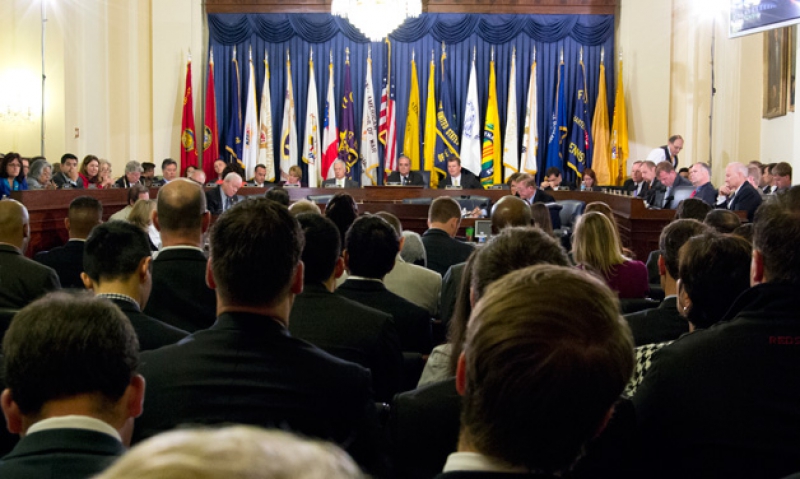
Unless additional funding arrives before November first, current and prospective G.I. Bill students will lose benefits, says VA secretary.
Unless additional mandatory funding for the operations of the Department of Veterans Affairs is allocated quickly, G.I. Bill benefits will soon be endangered. That was the word from VA Secretary Eric Shinseki Wednesday as he appeared before the U.S. House Committee on Veterans’ Affairs. Before a standing-room-only audience and with a full complement of committee members present, Shinseki spoke for well over two hours of the "all negative" consequences of a prolonged government shutdown and looming lack of funding for the veterans’ support agency.
He explained how the expected end-of-the-month exhaustion of VA’s congressionally mandated "carryover" funds, designed as a transition instrument from one fiscal year’s budget to the next, would negatively impact nearly every aspect of his agency’s operations.
Several committee members asked specifically about the effects a depletion of VA funds would have on students now attending institutions of higher learning under the Post-9/11 G.I. Bill. One such inquiry came from Rep. Gloria Negrete McLeod, D-Calif.
"What will happen after November the first when they won’t get their money?" she asked. "Have you talked to the colleges and institutions and universities?"
Shinseki replied, "We are doing everything we can while we have mandatory funds available in at least two categories in which we will expend money to cover immediately. One is the retroactive aspects of a claim. So if someone …i s due money, (we will), to the best of our ability, pay those. And, for students currently in school, we will pay those as well.
"But that draws down this mandatory account I’m speaking about (so that) before the end of this month, it’ll be in a situation where I can no longer pay. And the (November first) payments that should be going out – we’ll not be able to do that unless more mandatory funding is provided."
Negrete McLeod then asked, "So, what happens to students … who have already started this semester or quarter?"
"This is a crucial question because for students who have already registered and had their tuition and fees (including book stipend) paid up front, I think they’re going to be okay," replied Shinseki. "Every situation is different. But, I will not be able to pay the monthly housing stipend. That would be an issue."
"I’m sure (the schools) are aware of our shenanigans here," Negrete McLeod said.
"I can assure you that we’ve reached out to schools and (are) doing the best we can to get their support and cooperation," Shinseki said. "But, the schools are not involved in the housing stipend. That’s directly from VA to the student. So, that is an issue. I will tell you (that) in my past experience the schools (honoring G.I. Bill benefits) have been quite cooperative. But, there are 6,000 of them, so we want to be sure that we have contact with all of them."
As a possible precedent, a number of institutions have announced temporary tuition payment relief for active-duty servicemember students receiving military tuition assistance.
In his testimony, Shinseki intimated that further VA staff furloughs, if necessitated by a lack of congressional accord, would prevent the agency from processing any new G.I. Bill benefit applications.
- Education

